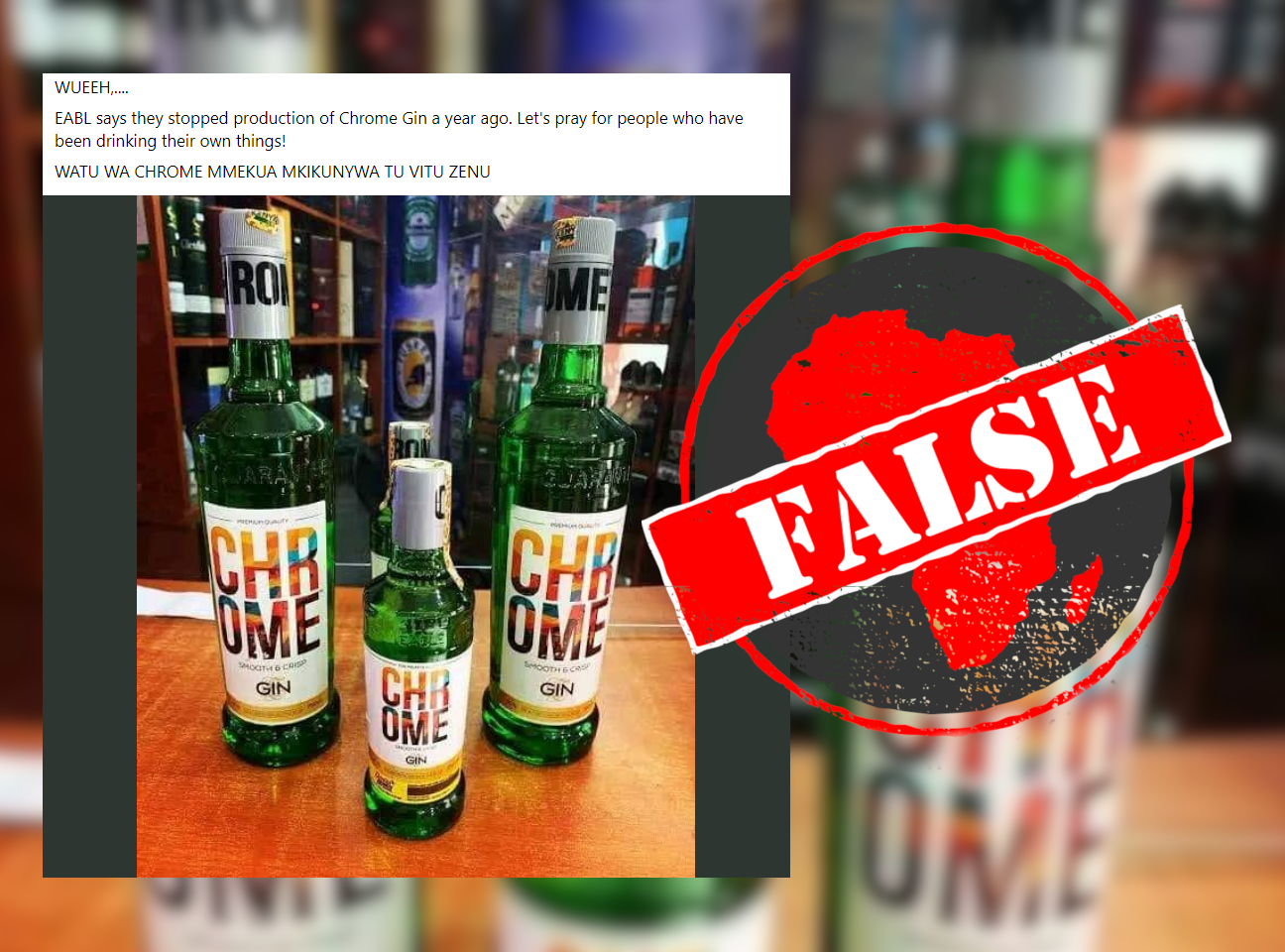IN SHORT: Counterfeit alcohol has caused many deaths in Kenya. So rumours that the production of a popular brand was stopped, despite it being available in the market, was likely to cause concern. But rest assured – the Chrome gin Kenyans have been drinking is the real deal.
“EABL says they stopped production of Chrome Gin a year ago,” reads a Facebook post published on 21 November 2022.
Launched in November 2020, Chrome gin is made by East African Breweries Limited (EABL), a Kenya-headquartered company that manufactures branded beer, spirits and non-alcoholic beverages.
“EABL says they stopped production of Chrome Gin a year ago. What have we been drinking?” reads another post, hinting that Kenyans have been consuming counterfeit Chrome gin.
Kenya has seen incidents of counterfeit alcohol, resulting in deaths and hospitalisations.
Similar posts about Chrome have also been posted here, here, here, here, here, here, here, here, here, here, here, here, here, here, here, here, here and here.
In response to a similar post on Twitter, Chrome Kenya on 14 November responded in Kiswahili saying, “Uuliskia wapi?! Chrome iko. Chungulia hapa ke.thebar.com.” This translates to: “Where did you hear that? Chrome is there. Check here ke.thebar.com.”
So is there any truth to these rumours?

Production of Chrome gin has not stopped
On its verified Twitter and Facebook pages, Chrome Kenya released an official statement.
“Chrome gin haijawai acha kuproduciwa na EABL,” the statement said in Sheng, or Kiswahili-English slang. In English this translates to: “Chrome gin has never stopped being produced by EABL.”
EABL also sent out a statement to reassure their customers.
Kenyans who love their tipple can say “bottoms up” with full confidence.
Republish our content for free
For publishers: what to do if your post is rated false
A fact-checker has rated your Facebook or Instagram post as “false”, “altered”, “partly false” or “missing context”. This could have serious consequences. What do you do?
Click on our guide for the steps you should follow.
Publishers guideAfrica Check teams up with Facebook
Africa Check is a partner in Meta's third-party fact-checking programme to help stop the spread of false information on social media.
The content we rate as “false” will be downgraded on Facebook and Instagram. This means fewer people will see it.
You can also help identify false information on Facebook. This guide explains how.


Add new comment